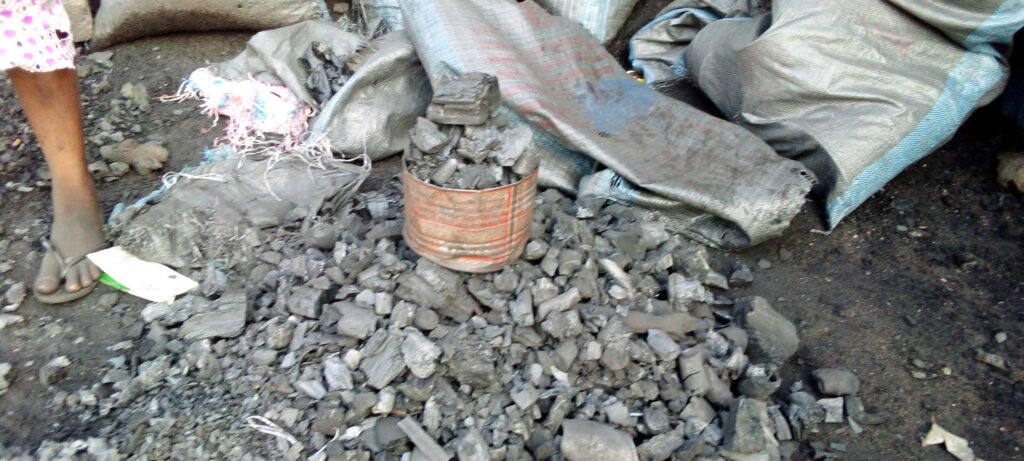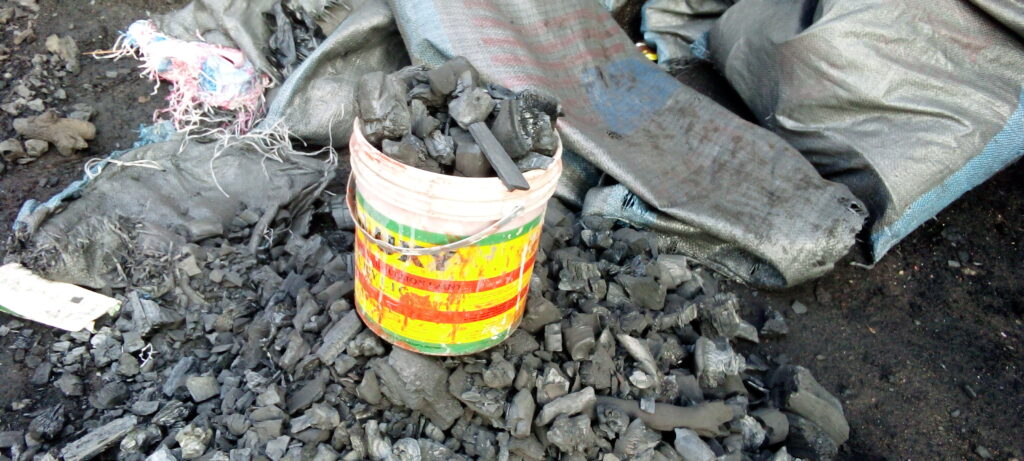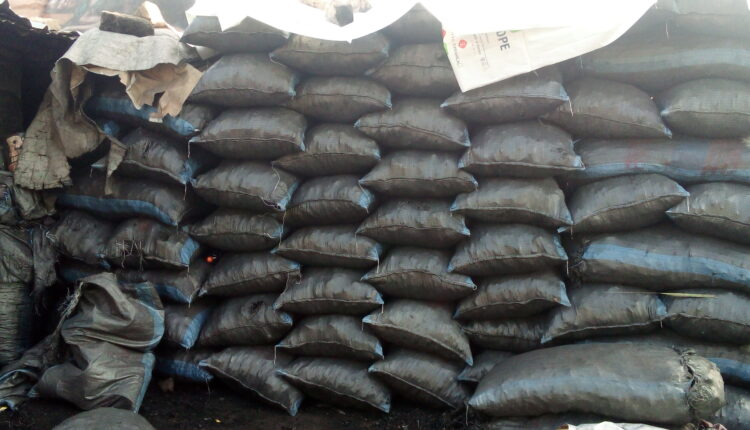Bag of charcoal increases by 200%
Within the space of two years, the price of a bag of charcoal has increased by 200 percent.
Currently, a bag of charcoal is being sold to retailers at GH₵150.00 as against GH₵ 50.00 in 2021 and 2022.
Some charcoal sellers or retailers who spoke with The Ghana Report on the recent surge in charcoal prices attributed the situation to the poor nature of roads, fuel increment, scarcity of wood, taxes, and levies.
Nafisa, a young lady in her late twenties who has been selling charcoal with her mother, to residents of Kwashieman, a suburb of Accra for the past 10 years lamented the continuous increment in charcoal prices.
According to Nafisa, most people are losing interest in purchasing charcoal due to the continuous increment.
She added that, although they buy the charcoal from the wholesalers at a very high price, which is now GH₵150.00, they are unable to make much profit on a bag of charcoal.
“We don’t know what is happening currently but the truth is that the price of a bag of charcoal has increased.
“Recently, that’s about two years ago, my mother used to buy a bag of charcoal from the loading buys at GH₵50.00 and GH₵45.00 depending on the texture of the charcoal. Normally, the hard ones are expensive so we buy that one for GH₵50.00 and the soft ones for GH₵45.00.
“Now, we buy a bag of charcoal from the loading boys at GH₵150.00 whether hard or soft, the same price. The annoying thing is that you will open the sack sometimes and realize beneath the sack is only clay with small charcoal. So how do you expect us to make any profit from this charcoal business? she quizzed.
Speaking on how much they sell the charcoal to customers she said; “Formerly our prices used to start from GH₵3 but now we have stopped. We now have GH₵5.00 and GH₵10.00.


Another charcoal retailer identified as Amina who spoke with The Ghana Report also confirmed that, currently, a bag of charcoal is delivered to them by wholesalers at GH₵150.00.
Although they continue to complain about price increments, nothing has been done about the issue.
“If you are not strong enough you may stop this business. I know many people who have stopped selling charcoal now because they can’t bear the cost.
“Some people go for loans for this business so imagine if you go for a loan for charcoal and you are unable to make enough profit to pay back your loan.
“They[loading boys] always tell us the fuel prices keep increasing. Additionally, the road is bad. The people who supply us the charcoal are from Damongo[a town and the capital of West Gonja Municipal in the Savannah Region] and we are calling on the government to do something about the situation.
Hajara Yusif a resident of Kwashieman who spoke with The Ghana Report noted that due to the surge in charcoal prices, she has resorted to gas.
“Now charcoal is being sold at GH₵5.00 and GH₵10.00. Even with that GH₵5.00, you can’t use it to prepare any meal. That can only be used to warm water and that’s all.
“During the Sallah[Islamic festival] time, I said let me use charcoal to prepare stew and just that, I have to buy charcoal GH₵70.00, why?” she quizzes.
“That is why I buy gas rather than charcoal now” she added.
READ ALSO: Ghanaians Express Worry Over Cedi Depreciation
Aunty Deborah, a former charcoal retailer at Ashalajai in the Greater Accra Region sadly revealed that she has to quit selling charcoal due to the increment which she could not bear.
“ I sell provisions, foodstuff, and charcoal. We all know that for some time now, the price of goods on the market has increased but for charcoal alone, it has increased too much”.
“I buy my charcoal from Kasoa New Market because that’s where I go for my goods. Just recently, they have increased charcoal from GH₵50.00 to GH₵150.00 why? She quizzes.
“I can’t buy it anymore. If you buy it, you can’t even get back that GH₵150.00 you bought the charcoal. I have to pay for transportation as well. How much do you expect me to sell the charcoal to my customers and make a profit? She questioned further.
Charcoal is an important source of energy in Ghana and constitutes a major source of livelihood for people in areas endowed with woodlands suitable for charcoal production. It is used by 80% of Ghanaian households as a primary or secondary source of energy for cooking and heating (Anang et al., 2011).
Although many households depend on gas as a source of energy, others also depend on charcoal for the preparation of meals, smoking of fish, and other uses.
The charcoal retailers are appealing to the necessary stakeholders in the industry to intervene, to control the continuous increment in charcoal prices.



